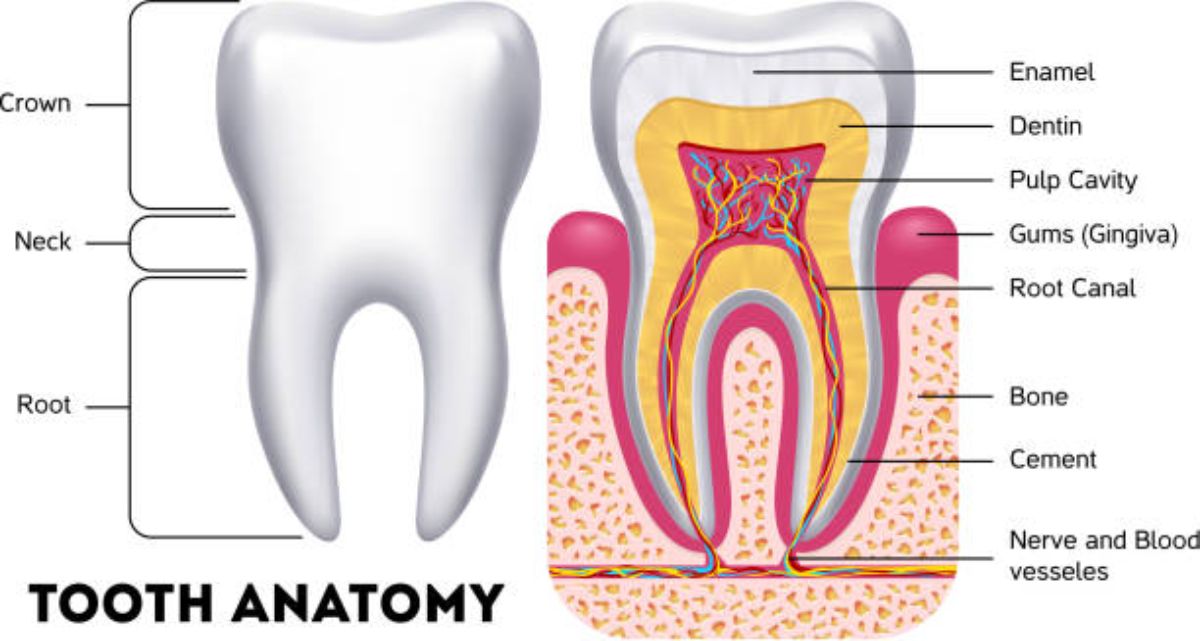Have you ever bitten into an ice cream cone and felt a shooting pain in your tooth? Ouch — it’s worse than a brain freeze! If you know this feeling, you’re not alone. Tooth sensitivity is a common dental issue for many patients in Metairie.
Although dentists are still undecided on the exact number of people who suffer from tooth sensitivity, sources say that anywhere from 11-50% of the population has struggled with it at some time in their lives. When it comes to addressing tooth pain, one of the best ways to help yourself is to learn as much as you can about the subject. Our team at the Charvet Dental Center is here to tell you everything you need to know about tooth sensitivity, including how our doctors can help.
What is tooth sensitivity?
Tooth sensitivity, or “dentin hypersensitivity,” is a heightened feeling in your teeth that causes discomfort in response to specific stimuli. You may notice your teeth are more sensitive to hot or cold temperatures.
These extremes in temperature or other stimuli can cause shocks to the exposed dentin in your teeth, which register as a sharp or shooting pain that makes eating, brushing your teeth, or even breathing an uncomfortable experience.
What causes tooth sensitivity?
Your teeth consist of several layers. The top layer is made of enamel, which is strong enough to chew your food without causing pain. This enamel acts as a protective barrier for the layers beneath.
The second layer is called dentin and is made up of a group of cells that help your teeth feel different sensations. However, sometimes the protective enamel can become weak or wear off entirely in some locations, exposing the sensitive layer of dentin below.
With the dentin exposed, you’re more likely to feel pain when your teeth come in contact with extreme stimuli, like ice cream. Several things might cause the dentin in your teeth to become exposed, including:
- Dental Work: Over time, repeated dental procedures like fillings, crowns, and whitenings can weaken the enamel covering your teeth. In cases like this, the tooth or teeth that your dentist worked on could be sensitive.
- Tooth Damage: If you’ve experienced an accident or injury, or if you have a chipped, broken, or decayed tooth, you are likely to experience tooth sensitivity.
- Brushing Habits: Using a hard-bristled toothbrush with excessive force may wear down the enamel on your teeth to reveal the dentin and cause sensitivity.
- Existing Health Conditions: If you suffer from gastroesophageal reflux disorder (GERD), gastroparesis, or bulimia, the excess acid in your system and near your teeth may break down the enamel on your teeth and cause sensitivity.
Specific foods or extreme conditions might also trigger tooth sensitivity. If you suffer from dentin hypersensitivity, you might feel pain when:
- Eating or drinking hot or cold food and beverages
- Eating sweet or acidic food and beverages
- Brushing or flossing teeth, especially with a hard-bristled toothbrush
- Using alcohol-based mouth rinses
Types of Tooth Sensitivity
Tooth sensitivity depends on the person, and your teeth may feel vulnerable to specific conditions or feel differently than others who experience sensitivity. Tooth sensitivity comes in many forms, from temporary to long-term and from dull aches to sharp pains.
Sharp Pain When Chewing or Biting Down
If your dentin is exposed, you may experience sensitivity when you close your mouth to bite down or chew. If you’ve ever had a loose feeling or tooth decay, this feeling is very similar. The pressure on your teeth may cause sharp pain that could mean you’ve chipped or fractured a tooth.
Dull Ache in Upper Teeth and Sinus Pressure
Dull but persistent tooth pain may result from a condition known as bruxism or tooth grinding. Many people grind their teeth during the night or when they’re anxious, and this pressure can wear down the enamel on your teeth over time, exposing the dentin. You may also feel a sinus pressure-like pain when eating, making tooth sensitivity harder to identify. Because the sinus area shares the same nerves as your upper teeth, your teeth may become sensitive if you suffer from a cold or the flu.
Constant Strong Pain and Swelling
Suppose your tooth pulp becomes infected or an abscess spreads into the surrounding periodontal tissue. In that case, you may experience constant intense pain and swelling in the teeth and gums in that area. This sensitivity will become more pronounced with touch and swell with infection.
Post-Dental Treatment Sensitivity
Dental treatment can irritate tooth pulp tissue, and teeth whitening treatment penetrates your tooth’s enamel resulting in temporary sensitivity for a couple of hours after leaving your dental office. This pain will correspond to the tooth or area in your mouth that received treatment but should not affect other parts of your mouth.
Sensitivity to Temperature & Taste
Experiencing pain when consuming hot, cold, sweet, or sour food or drinks is the most common experience for people who suffer from tooth sensitivity. It usually means that the enamel in that area is worn wherever the sensitivity occurs, and the dentin and nerve within the tooth are exposed. This sensitivity will be sudden but usually only lasts while the teeth are exposed to the stimulant and then subsides.
Treating Tooth Sensitivity At Home
Fortunately, tooth sensitivity is not a life-long sentence, and our team at Charvet Dental Center can teach you how to get back on track to enjoy life without it. Here are some ways you can treat your tooth sensitivity at home:
- Use the right toothpaste: Opting for a toothpaste designed for people with sensitive teeth is an excellent way to ease your pain.
- Use the right toothbrush: Throw out that hard-bristled toothbrush and choose a soft-bristled brush instead. They’re far less abrasive and can protect your enamel from wearing down.
- Avoid foods or drinks that trigger pain: If hot, cold, sweet, or sour food or liquids cause your teeth to hurt, try to avoid them.
Treating Tooth Sensitivity At Charvet Dental Center
Sometimes at-home treatments just don’t do the trick. If you’ve tried the treatments above and are still feeling pain, reach out to our team. Here’s how we can help at your next appointment:
- Applying fluoride: Fluoride is a natural material that helps strengthen your enamel. Usually, fluoride is found in your toothpaste and water, but if your teeth are extra sensitive, we can use a more concentrated fluoride gel to ease your discomfort.
- Repairing your teeth: Because tooth sensitivity results from the weakened protective layer on your teeth, Dr. Hunter or Dr. Hunter, Jr. might attach a crown, inlay, or bonding to protect the dentin layer from exposure.
- Root canal: This treatment cleans and removes infected pulp and nerves causing the sensitivity, giving you relief.
- Surgical gum graft: This procedure can insulate your root and protect it from sensitivity if you’ve lost gum tissue at the root.
Here to Make You Smile
Sometimes tooth sensitivity can get in the way of your smile, but Charvet Dental is here to make sure your pain goes away. If you are feeling vulnerable when eating certain foods or putting pressure on your teeth, schedule an appointment with Dr. Hunter or Dr. Hunter, Jr. so we can get your smile back on track today!
 Schedule Now
Schedule Now



